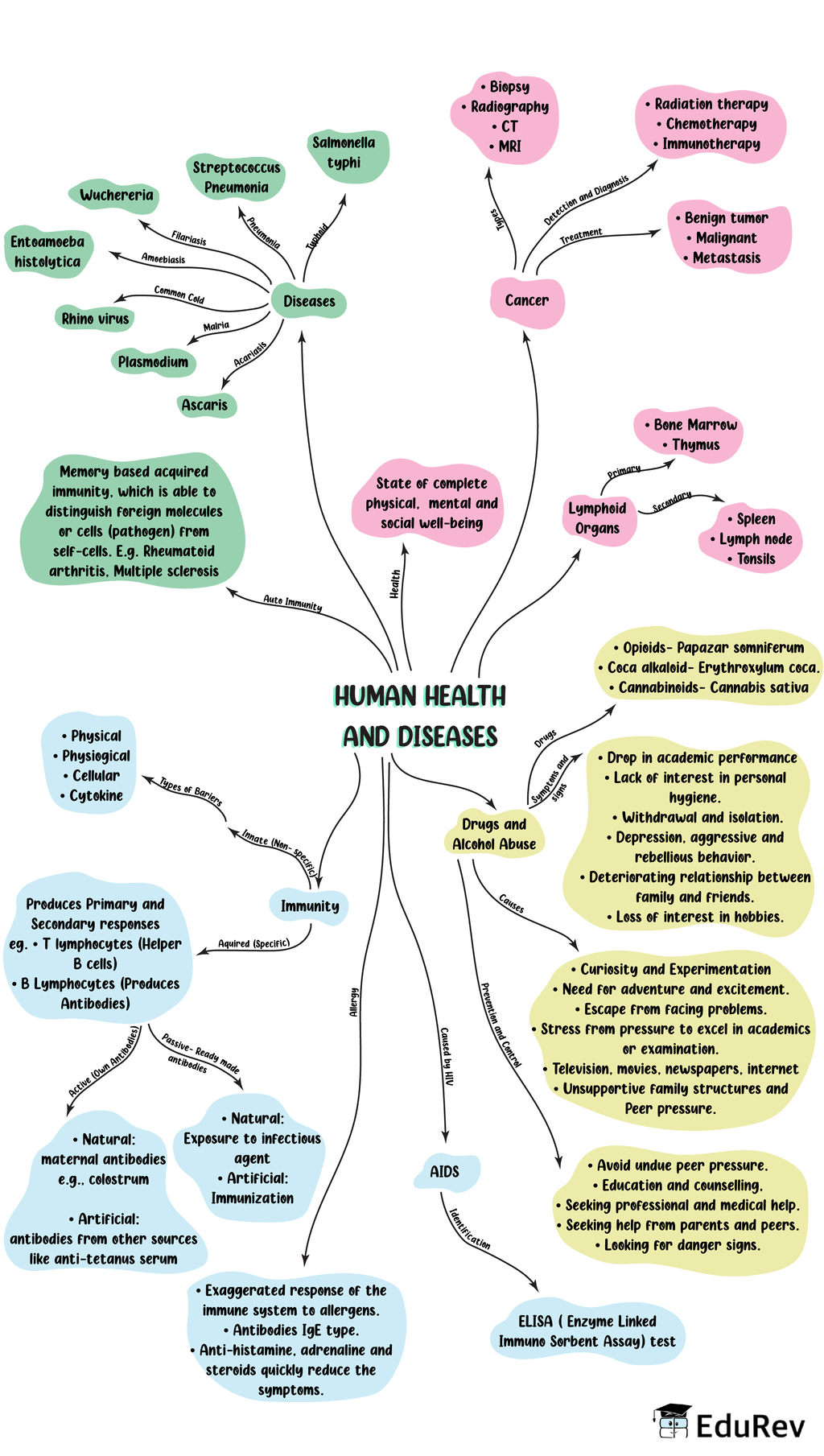SSC CGL Exam > SSC CGL Notes > General Awareness for SSC CGL > Mind Map: Human Health and Diseases
Mind Map: Human Health and Diseases | General Awareness for SSC CGL PDF Download

The document Mind Map: Human Health and Diseases | General Awareness for SSC CGL is a part of the SSC CGL Course General Awareness for SSC CGL.
All you need of SSC CGL at this link: SSC CGL
|
468 videos|1404 docs|395 tests
|
FAQs on Mind Map: Human Health and Diseases - General Awareness for SSC CGL
| 1. How do diseases affect human health? |  |
Ans. Diseases can have a significant impact on human health by causing various symptoms, impairing bodily functions, and reducing overall well-being. They can range from mild illnesses like the common cold to severe conditions like cancer or cardiovascular diseases. Diseases can lead to physical discomfort, hinder daily activities, and even result in long-term disabilities or death.
| 2. What are some common infectious diseases that affect human health? |  |
Ans. There are several common infectious diseases that can affect human health. These include respiratory infections like influenza or pneumonia, gastrointestinal infections like food poisoning, sexually transmitted infections like HIV or gonorrhea, and vector-borne diseases like malaria or dengue fever. These diseases are caused by pathogenic microorganisms such as viruses, bacteria, fungi, or parasites.
| 3. How can human health be maintained and diseases prevented? |  |
Ans. Maintaining human health and preventing diseases can be achieved through various strategies. Some important measures include practicing good hygiene, such as washing hands regularly, getting vaccinated against preventable diseases, maintaining a balanced diet, engaging in regular physical exercise, avoiding tobacco and excessive alcohol consumption, and seeking timely medical care. Additionally, promoting public health initiatives, such as clean water supply and sanitation, can also contribute to disease prevention.
| 4. What are the risk factors for developing non-communicable diseases? |  |
Ans. Non-communicable diseases (NCDs) are chronic diseases that are not caused by infectious agents and cannot be transmitted from person to person. Risk factors for developing NCDs include unhealthy lifestyle choices like poor diet, lack of physical activity, tobacco and alcohol use, exposure to environmental pollutants, genetic predisposition, and certain underlying medical conditions. These risk factors can increase the likelihood of developing diseases such as cardiovascular diseases, diabetes, cancer, and respiratory diseases.
| 5. How does mental health impact overall human health? |  |
Ans. Mental health plays a crucial role in overall human health and well-being. Poor mental health can lead to various physical and psychological symptoms, impacting daily functioning and quality of life. Mental health conditions like depression, anxiety, or stress can contribute to the development or exacerbation of physical illnesses. Conversely, maintaining good mental health through stress management, seeking support, and engaging in self-care activities can promote overall well-being and reduce the risk of developing certain diseases.
Related Searches





















